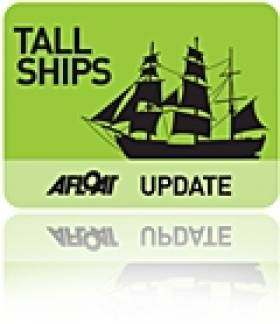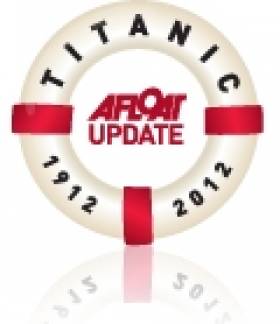Displaying items by tag: replica
Tall Ship Topples During Storm in America
#tallship – A revolutionary war replica tall ship has been toppled by strong wind gusts during the snowstorm that's pounding Rhode Island in the United States.
The 110-foot ship was extensively damaged when it fell on its side at the Newport Shipyard on Tuesday. It was stored there for the winter.
The mast is broken and the hull is punctured according to its owner Thorpe Leeson, owner and captain of the Continental Sloop Providence. Extra supports had been added as a precaution but couldn't sustain the heavy winds.
The replica of the USS Providence is the state flagship and tall ship ambassador.
Titanic Scale Model Focus of High Court Dispute
#TITANIC - A replica of the Titanic is at the centre of a High Court dispute between two former partners, as RTE News reports.
Carmel McGrath claims she paid the costs of constructing the 16ft scale replica of the tragic cruise liner, and has secured an injunction preventing Zoltan Panka, a Hungarian national, from selling the €70,000 model after he removed it from her home in the northern suburbs of Cork.
Panka gave a sworn statement to the court disputing the claims of his former partner, alleging he received abusive messages from her after taking the model.
He denies any intention to sell the replica, currently believed to be at a location in Carrigaline, and repudiates the estimated value of McGrath's investment as well as any commercial relationship between the two.
The Hungarian added that model ship building was a family hobby, and that he had put in as much as 2,000 hours' worth of work into the uncompleted project, which was intended to mark the 100th anniversary of the ship's demise.
RTE News has much more on the story HERE.
Marine Notice on Exemptions from EU Regulations for Recreational Water Craft
#NEWS UPDATE - A recent Marine Notice from the Department of Transport, Tourism and Sport (DTTAS) advises consumers, retailers and manufacturers on the types of craft to which the EU recreation water craft regulations do not apply.
In general recreational craft and related products must meet the essential safety, health, environmental protection and consumer protection requirements of the Recreational Craft Directive as set out in the Recreational Craft Regulations.
However, these regulations do not apply to craft intended solely for racing; canoes and kayaks; gondolas and pedalos; surfboards; historical water craft and replicas; experimental craft and ones built for own use; commercial craft; and a number of others.
These exceptions are however still subject to the EU's General Product Safety Directive.
Complete details are included in Marine Notice No 56 of 2011, a PDF of which is available to read and download HERE.
- Marine Notice
- water craft
- regulations
- EU
- Department of Transport, Tourism and Sport
- DTTAS
- consumers
- retailers
- manufacturers
- recreational craft
- Safety
- Health
- environmental protection
- Recreational Craft Directive
- Recreational Craft Regulations
- racing
- Canoes
- Kayaks
- gondolas
- pedalos
- surfboards
- historical
- replica































































